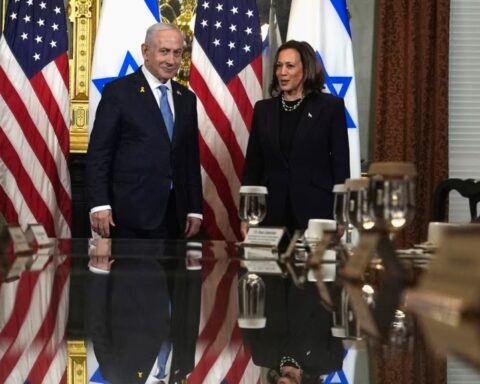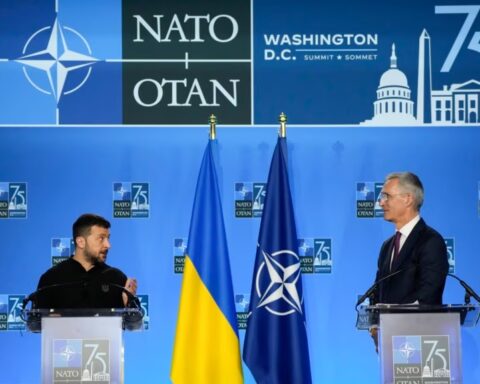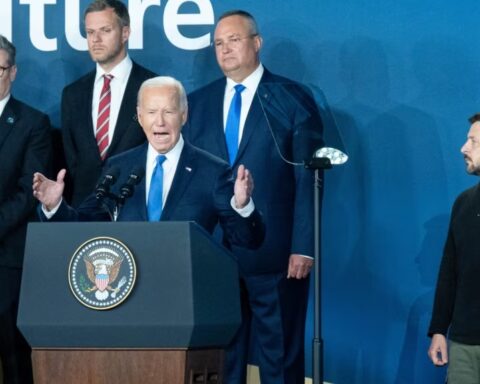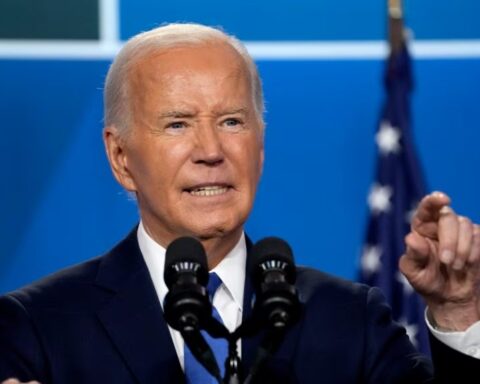The Federal Trade Commission on Thursday sued to block Microsoft’s $69 billion acquisition of the video game publisher Activision Blizzard, charging that the massive deal would allow the Washington tech giant to suppress its competitors in gaming.
The lawsuit represents the FTC’s most significant effort to rein in consolidation in the tech industry since prominent tech critic Lina Khan (D) became the commission’s chair and was expected to usher in an era of antitrust enforcement characterized by a willingness to bring cases in court rather than pursue settlements with companies.
The case signals a broader strategy at the agency to bring cases against deals that may pose competitive threats in the future, especially in nascent gaming markets. The lawsuit was issued the same day that a trial began in San Jose in an FTC lawsuit against Facebook parent company Meta over its acquisition of the virtual reality company Within. The agency has argued that if the companies could be kept separate, they would push each other to develop more features and attract more users, benefiting competition in the future.
The FTC lawsuit against Microsoft could foil the company’s ambitions to become a heavier hitter in gaming frontiers. Activision is the owner of popular titles such as “Candy Crush” and “Call of Duty,” and its acquisition could bolster Microsoft in its competition with Japanese console makers Nintendo and Sony.
The commission voted Thursday on a party-line vote to issue the lawsuit in administrative court, with the three Democrats in favor of the complaint and one Republican against it.
Microsoft has not seen such a serious regulatory threat to its business in more than two decades, when the Justice Department brought a landmark antitrust lawsuit against the company that ensnared it in years of legal battles.
After that case was settled in 2002, Microsoft had largely avoided the antitrust glare focused on tech rivals including Facebook, Google, Apple and Amazon — until the proposed Activision acquisition, the largest deal in Microsoft’s history. (Amazon founder Jeff Bezos owns The Washington Post).
Trustbusters are bypassing the biggest tech company of them all
Microsoft President Brad Smith signaled that the company would fight the lawsuit, saying in a statement that the company has “been committed since Day One to addressing competition concerns.”
“While we believed in giving peace a chance, we have complete confidence in our case and welcome the opportunity to present our case in court,” Smith said.
Since announcing its intention to buy Activision in January, Microsoft has announced policies and arrangements intended to show regulators that the deal would not give it an unfair advantage in the gaming market or harm workers. On Tuesday, as it was apparent the agency was nearing a decision on the deal, Microsoft announced that it would bring the Call of Duty franchise to Nintendo Switch, a rival of Xbox. It previously had said it would make Call of Duty available on rival Sony’s PlayStation.
The FTC moved to block the deal a day after Microsoft staff met with agency representatives to discuss the lawsuit, according to a person familiar with the meeting, who spoke on the condition of anonymity to discuss a private meeting. Smith said the company offered “proposed concessions” to the agency earlier this week.
The coming decision about whether to allow Microsoft’s merger with Activision Blizzard to move forward is a bellwether for American antitrust policy. By approving this merger, the Federal Trade Commission (FTC) has the opportunity to make a strong statement in favor of economic democracy and provide a blueprint for an enforceable remedy to protect workers from large employers abusing market power to undercut wages and working conditions.
Labor considerations have for too long been absent from antitrust decisions even though the potential harms to workers as the result of mergers are evident. From the start, President Biden made clear that things would be different on his watch. Restoring the American middle class by strengthening unions has been a top priority for his administration, and the president issued an executive order calling on the Department of Justice and the FTC to strengthen antitrust guidelines to address labor market concerns, with a particular focus on the tech sector.
Microsoft was well aware of this changed antitrust climate when it announced its intent to acquire Activision Blizzard, knowing that regulators would be taking a close look at the transaction’s potential impact on workers. It was in this context that we were able to negotiate an unprecedented labor neutrality agreement, which, if the merger is approved, would allow workers at Activision to freely and fairly make a choice about union representation.
There is, arguably, no industry that needs a strong workforce with inside knowledge to expose wrongdoing or stand up for the common good more than tech.
Our neutrality agreement with Microsoft is different from other behavioral remedies which have often been tossed aside by companies as soon as the ink was dry on their deals.
This is a structural solution, creating a pathway for workers to organize and exercise their true bargaining strength, altering power relations in the labor context but also potentially empowering thousands of consumer-minded watchdogs inside the company. And it’s enforceable through a legally binding agreement.
Sony, which currently has the largest share of the video game console market, has been one of the few vocal opponents of the merger. It is a stark contrast of interests:
If the merger is approved and the labor deal with Microsoft is effectuated, Activision Blizzard workers across the United States fighting sexual harassment and other poor working conditions stand to finally have a voice on the job and a chance to shape working conditions throughout the industry, and gamers will have allies inside a corporation with real protections for speaking out in consumers’ interests.
If the merger is disapproved, the power relations within the gaming industry for labor stay the same, Sony protects its very profitable position as the industry leader, and consumers will have to wait and see if subscription services mature into a viable gaming option.
FTC chair Lina Khan has been a strong advocate for an antitrust policy that takes workers’ interests and fair market functioning into account. Thanks to her leadership and the outreach and interest of the FTC staff, labor is now part of the national antitrust conversation. Approving this merger with the labor agreement that we fashioned with Microsoft to protect collective bargaining rights would send a game-changing message to corporate America that workers do indeed have a seat at the table and their concerns matter and must be addressed.
It’s time to seal the deal, not blow it up.
Chris Shelton is the president of Communications Workers of America (CWA), which represents hundreds of thousands of workers throughout tech, media, telecom, and other industries. Workers at Microsoft and Activision are organizing to join CWA through the union’s CODE-CWA project.













